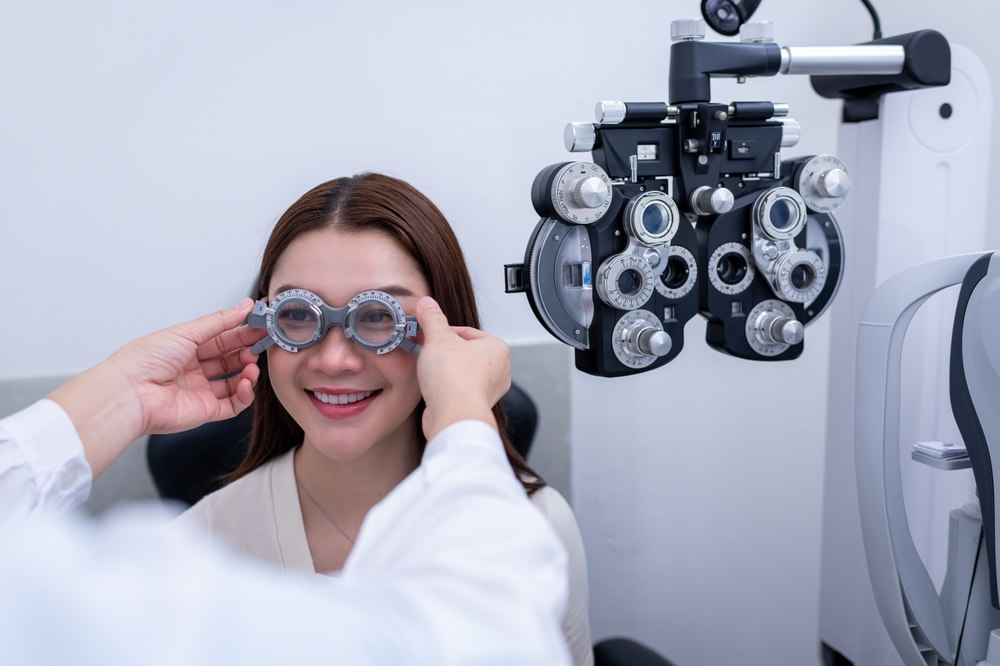Routine Eye Exam vs. Functional Vision Evaluation: What You’re Missing

Why 20/20 Vision Isn’t Enough for Reading, Learning, or Thriving in the Classroom
“But we just had her eyes checked.”
If you’ve ever said those words, only to keep wondering why your child still struggles to read, focus, or stay motivated, this post is for you.
Millions of children pass routine eye exams every year. Their vision is labeled “perfect,” yet they:
● Hate reading
● Struggle with attention
● Skip lines, lose their place, or guess at words
● Complain of tired eyes, motion sensitivity, or headaches
So… what gives?
The answer lies in what routine eye exams test and what they don’t.
The Eye Chart Tells You What You See.
A Functional Vision Evaluation Tells You How You Use It.
Most vision screenings (at school or at a pediatrician's office) involve reading letters from a distance chart. If your child can read the 20/20 line, they “pass.”
Some optometrists will check eye health and possibly prescribe glasses. That’s important—but still only part of the picture.
A routine eye exam checks:
● Eye clarity (Do the eyes see clearly?)
● Eye health (Are the eyes physically healthy?)
● Refraction (Do you need glasses or a prescription update?)
A functional vision evaluation checks:
● Eye teaming – Do both eyes work together smoothly?
● Eye tracking – Can the eyes move accurately across a line of text?
● Eye focusing – Can the eyes adjust focus between near and far quickly?
● Visual processing – Can the brain understand, remember, and respond to what the eyes see?
In short: a routine exam measures eyesight. A functional evaluation measures the skills that support reading, attention, and learning.
Why It Matters So Much for School-Age Kids
Reading, writing, copying from the board, and keeping your place on a page all require finely tuned visual coordination.
If even one part of the visual system is out of sync, it can cause:
● Headaches or eye strain
● Short attention span
● Fatigue during homework
● Poor reading comprehension
● Avoidance of reading altogether
And because many of these signs are behavioral, they often get mistaken for ADHD, dyslexia, or a lack of motivation. We’ve seen students go through years of tutoring, medications, and frustration—without anyone realizing their visual system was the problem all along.
Real-Life Comparison:
The Routine Eye Exam Kid vs. The Full Picture
Scenario: Your child is struggling in school. You schedule an eye exam. At a Routine Eye Exam you hear the following things from your child’s doctor:
● 20/20 eyesight confirmed
● Eyes look healthy
● No glasses needed
The official verdict is that “everything looks fine”. You go home relieved, but weeks later, nothing has changed. Your child still complains. Homework is still a battle.
You discover and take them to get a Functional Vision Evaluation:
● Testing shows weak eye teaming and poor tracking
● Difficulty maintaining focus on near tasks
● Visual memory is below expected age level
Now the verdict is that your child’s eyes are indeed fine each one by itself, but they’re not working well together as a team. Now you have a real answer and a real solution.
When to Consider a Functional Vision Evaluation
Ask yourself:
● Does my child skip words or lines while reading?
● Do they get tired or distracted easily during visual tasks?
● Have they had repeated struggles with reading or learning, despite having “good vision”?
● Do they reverse letters, mix up word order, or guess frequently?
● Do they complain of blurry vision, motion sensitivity, or headaches?
If you said “yes” to any of the above, your child might benefit from a deeper look into how their visual system is functioning.
What Does a Functional Vision Evaluation Involve?
A functional vision evaluation is:
● Hands-on and individualized: your child performs a variety of visual tasks
● Conducted by a developmental or behavioral optometrist, a specialist trained to assess the full visual system
● Designed to uncover hidden weaknesses in visual efficiency, processing, and coordination
● Often the turning point for families who’ve tried everything else.
After testing, you’ll receive a detailed report explaining where your child struggles and what can be done to help—often through a personalized program of vision therapy.
The Takeaway
If your child has passed their eye exam but still struggles to read, focus, or thrive in school, you’re not crazy. And you’re not alone. You’re probably not missing motivation or discipline. You might just be missing a key part of their visual system.
A functional vision evaluation could reveal the missing link, and open the door to real, lasting progress.


